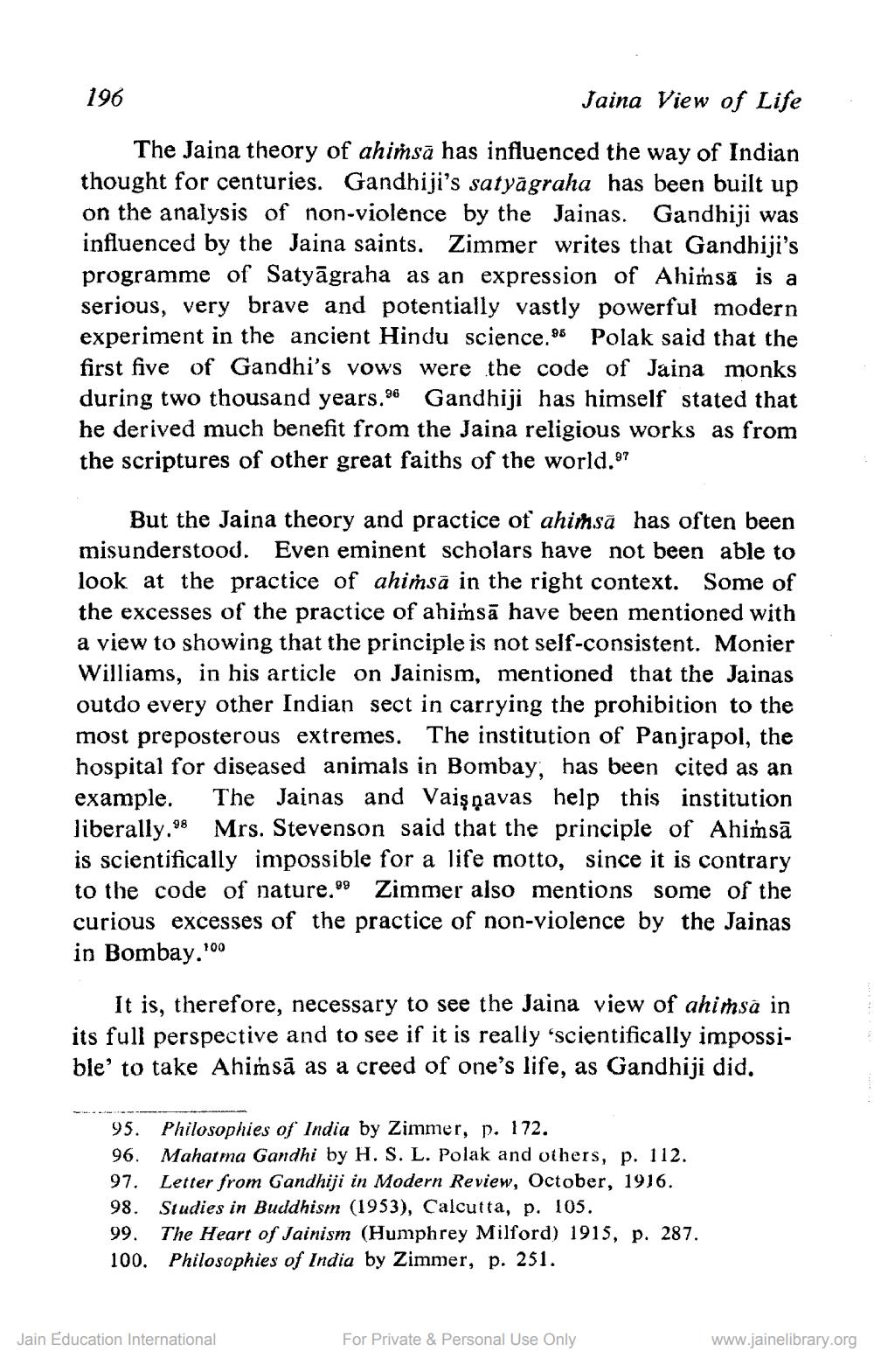________________
196
Jaina View of Life The Jaina theory of ahimsā has influenced the way of Indian thought for centuries. Gandhiji's satyāgraha has been built up on the analysis of non-violence by the Jainas. Gandhiji was influenced by the Jaina saints. Zimmer writes that Gandhiji's programme of Satyāgraha as an expression of Ahiṁsā is a serious, very brave and potentially vastly powerful modern experiment in the ancient Hindu science.96 Polak said that the first five of Gandhi's vows were the code of Jaina monks during two thousand years.96 Gandhiji has himself stated that he derived much benefit from the Jaina religious works as from the scriptures of other great faiths of the world.?
But the Jaina theory and practice of ahimsa has often been misunderstood. Even eminent scholars have not been able to look at the practice of ahimsā in the right context. Some of the excesses of the practice of ahiṁsā have been mentioned with a view to showing that the principle is not self-consistent. Monier Williams, in his article on Jainism, mentioned that the Jainas outdo every other Indian sect in carrying the prohibition to the most preposterous extremes. The institution of Panjrapol, the hospital for diseased animals in Bombay, has been cited as an example. The Jainas and Vaişşavas help this institution liberally.98 Mrs. Stevenson said that the principle of Ahimsā is scientifically impossible for a life motto, since it is contrary to the code of nature.99 Zimmer also mentions some of the curious excesses of the practice of non-violence by the Jainas in Bombay.100
It is, therefore, necessary to see the Jaina view of ahimsa in its full perspective and to see if it is really 'scientifically impossible to take Ahińsā as a creed of one's life, as Gandhiji did.
95. Philosophies of India by Zimmer, p. 172. 96. Mahatma Gandhi by H. S. L. Polak and others, p. 112. 97. Letter from Gandhiji in Modern Review, October, 1916. 98. Studies in Buddhism (1953), Calcutta, p. 105. 99. The Heart of Jainism (Humphrey Milford) 1915, p. 287. 100. Philosophies of India by Zimmer, p. 251.
Jain Education International
For Private & Personal Use Only
www.jainelibrary.org




